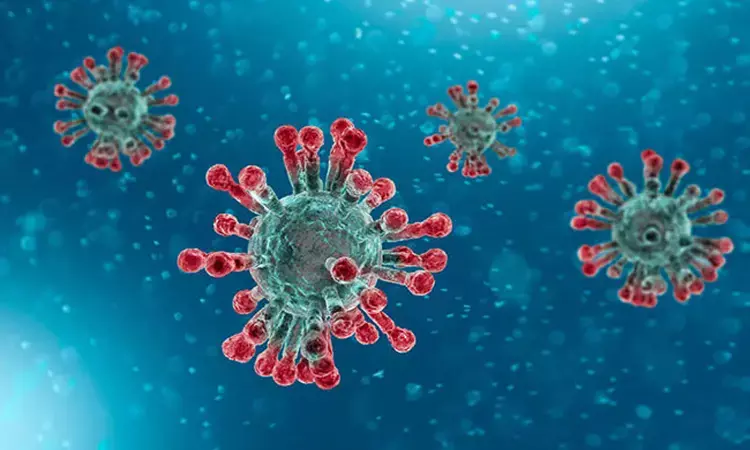- Home
- Medical news & Guidelines
- Anesthesiology
- Cardiology and CTVS
- Critical Care
- Dentistry
- Dermatology
- Diabetes and Endocrinology
- ENT
- Gastroenterology
- Medicine
- Nephrology
- Neurology
- Obstretics-Gynaecology
- Oncology
- Ophthalmology
- Orthopaedics
- Pediatrics-Neonatology
- Psychiatry
- Pulmonology
- Radiology
- Surgery
- Urology
- Laboratory Medicine
- Diet
- Nursing
- Paramedical
- Physiotherapy
- Health news
- Fact Check
- Bone Health Fact Check
- Brain Health Fact Check
- Cancer Related Fact Check
- Child Care Fact Check
- Dental and oral health fact check
- Diabetes and metabolic health fact check
- Diet and Nutrition Fact Check
- Eye and ENT Care Fact Check
- Fitness fact check
- Gut health fact check
- Heart health fact check
- Kidney health fact check
- Medical education fact check
- Men's health fact check
- Respiratory fact check
- Skin and hair care fact check
- Vaccine and Immunization fact check
- Women's health fact check
- AYUSH
- State News
- Andaman and Nicobar Islands
- Andhra Pradesh
- Arunachal Pradesh
- Assam
- Bihar
- Chandigarh
- Chattisgarh
- Dadra and Nagar Haveli
- Daman and Diu
- Delhi
- Goa
- Gujarat
- Haryana
- Himachal Pradesh
- Jammu & Kashmir
- Jharkhand
- Karnataka
- Kerala
- Ladakh
- Lakshadweep
- Madhya Pradesh
- Maharashtra
- Manipur
- Meghalaya
- Mizoram
- Nagaland
- Odisha
- Puducherry
- Punjab
- Rajasthan
- Sikkim
- Tamil Nadu
- Telangana
- Tripura
- Uttar Pradesh
- Uttrakhand
- West Bengal
- Medical Education
- Industry
Are people with certain blood groups more susceptible to COVID-19 infection?

Blood group A has a significantly higher risk for acquiring COVID-19 compared with non-A blood groups
China: As COVID-19 has set most parts of the country in lock-down, several pieces of research are undertaken to find a solution to flat the epidemiological curve. One such research showed the relationship between the ABO blood group and the COVID-19 susceptibility which was published in medrxiv(which is a preprint and not yet been peer-reviewed)
COVID-19, which first emerged in Wuhan, China in December 2019, is relentlessly sweeping across the world. Its rising figure had led the World Health Organisation to declare it as a pandemic disease in early February 2020.
The study which was conducted compared the blood group distribution in 2,173 patients with COVID-19 confirmed by the SARS-CoV-2 test from three hospitals in Wuhan and Shenzhen, China with that in normal people from the corresponding regions. Data were analyzed using one-way ANOVA and 2-tailed χ2 and a meta-analysis was performed by random-effects models. The team looked at the distribution of blood types in the normal population in each area and then compared it to their sample of patients with the virus, again in each area.
As per the study, the normal population in Wuhan has a blood type distribution of 31 percent type A, 24 percent type B, 9 percent type AB, and 34 percent type O.Those with the virus, by comparison, were distributed as follows: 38 percent type A, 26 percent type B, 10 percent type AB, and 25 percent type O. Similar differences were observed in Shenzhen.
Hence the study result showed that people with blood group A have a significantly higher risk for acquiring COVID-19 compared with non-A blood groups, whereas blood group O has a significantly lower risk for the infection compared with non-O blood groups but it doesn't mean that people with type O blood type are immune, and not everyone who gets the virus is going to be type A.
There are relatively small differences that stay as a major limitation of the study." If replicated in studies with larger data pools, it could lead to slight changes in the way we manage the spread of the disease; but even so, it probably won't change anything about the way we individually should be trying to limit the spread of the virus" concluded the authors.
For further reading click on the following link,
https://doi.org/10.1101/2020.03.11.20031096
MBBS
Dr K B AARTHI-has completed MBBS from SRM UNIVERSITY TAMIL NADU,Her interest is in the field of Pediatrics and Anaesthesia, also passionate in doing research and publishing articles.She joined Medical Dialogues in 2020 and publishes health news and medical updates. Email: editorial@medicaldialogues.in. Contact no. 011-43720751,9786713226
Dr Kamal Kant Kohli-MBBS, DTCD- a chest specialist with more than 30 years of practice and a flair for writing clinical articles, Dr Kamal Kant Kohli joined Medical Dialogues as a Chief Editor of Medical News. Besides writing articles, as an editor, he proofreads and verifies all the medical content published on Medical Dialogues including those coming from journals, studies,medical conferences,guidelines etc. Email: drkohli@medicaldialogues.in. Contact no. 011-43720751


